New Kansas bill allowing challenges to COVID-19 restrictions forces district to adapt
Five district parents have already used the bill, which requires that a COVID-19 rule “uses the least restrictive means,” to challenge the mask mandate in schools
After giving his presentation on school security at the Board of Education meeting on Monday, Aug. 13, 2018 assistant superintendent Alvie Cater looks at his fellow board members.
April 1, 2021
A new Kansas Senate bill exempting schools from state and county COVID-19 orders and allowing students, parents, or staff to request hearings to challenge COVID-19 regulations has forced the district to rapidly develop new policies and procedures to meet the bill’s demands.
According to a statement by assistant superintendent Alvie Cater, the bill (SB 40, which can be read in full here) requires the district to hold a hearing for any contested restriction within 72 hours of the complaint being made, and rule on it within seven days.
Students, parents, and staff can also file civil complaints in district courts, requesting relief in the form of loosened COVID-19 restrictions; according to the bill’s text, if a hearing is not held within 72 hours and a decision not made within seven days of this request in court, the request for relief will be automatically granted.
According to Cater, one such hearing has already been requested under the bill, which was signed into law on Wednesday, March 24. On Monday, March 29, five parents of students in the district contested the district’s policy requiring masks to be worn in schools.
The district scrambled to hold a hearing within 72 hours to comply with SB 40; since there was not enough time to set a special board meeting, they instead scheduled a hearing for the morning of Wednesday, March 31.
These initial complaints regarding the mask mandate sputtered out. After the district set the hearing date, three of the five petitioners contacted the district to withdraw their challenge, and the other two petitioners did not respond to the district’s attempts to contact them or show up at the scheduled hearing.
With no petitioners in attendance at the hearing, the district’s hearing officers simply called the meeting to order, read an opening statement, and adjourned the hearing — meeting the bill’s requirements for compliance. However, future petitions could pose further logistical challenges.
According to Cater, further guidelines for compliance with SB 40 will be discussed at the next board meeting, along with discussion of the petition filed against the mask mandate.
“We are still reviewing the new law and this will be a topic at the April 5 Board of Education meeting,” Cater said.
Even if similar complaints are leveled in the future, the Coming Back Together guidelines, which originally mandated the wearing of masks, were passed in July. This timing would make the mask mandate and other policies difficult to overturn, since the bill requires that a complaint be filed within 30 days of the action being taken.
“As you read the law, you see that a hearing to contest such action, order or policy must occur within 30 days after the action was taken, order was issued or policy was adopted by the Board of Education,” Cater said. “The Board of Education on July 13, 2020, took action and adopted a policy to require the wearing of masks in response to the public health emergency regarding COVID-19.”
It is unclear whether the district is still required to hold the mandated hearings for challenges to COVID-19 guidelines passed outside the 30-day window, though. The topic will likely be addressed at the Monday, April 5 board meeting.
The logistical challenges posed to the district by SB 40 are just one of the bill’s various implications. More generally, the bill renews some COVID-19 guidelines and provisions, while restricting other response efforts — such as the power of the governor, district boards, and county boards to implement COVID-19 restrictions.
“This bipartisan compromise will extend the state of disaster emergency that allows us to provide hospitals with PPE, support food banks and pantries, and otherwise respond to the COVID-19 pandemic,” Kansas Gov. Laura Kelly said in a press conference. “The bill includes provisions that I do not support and that could complicate our emergency response efforts. But I will continue to work with legislators and local leaders to keep Kansans safe and healthy during this pandemic.”
In addition to limiting the power of Kelly, SB 40 requires that court decisions are “narrowly tailored to respond to the state of disaster emergency and uses the least restrictive means to achieve such purpose.” In effect, this wording could spell the end of many COVID-19 restrictions to comply with what is “least restrictive.”
Kansas Senate President Ty Masterson supported the bill in a statement, arguing that the bill limits the governor’s powers, implements important checks and balances, and ensures that “the buck stops with elected officials.”
Some groups like the De Soto Teachers Association have expressed concern about the bill, though, arguing that it will allow decisions based in science — such as the mask mandate — to be challenged and struck down.
“The mask requirement has been a cornerstone of our COVID-19 mitigation strategy since last July,” the DTA said in a statement. “To abandon it now when we have finally figured out how to safely get our students in the classroom would be an unfortunate decision, especially given that every health organization governing USD 232 is urging us to continue wearing masks.”



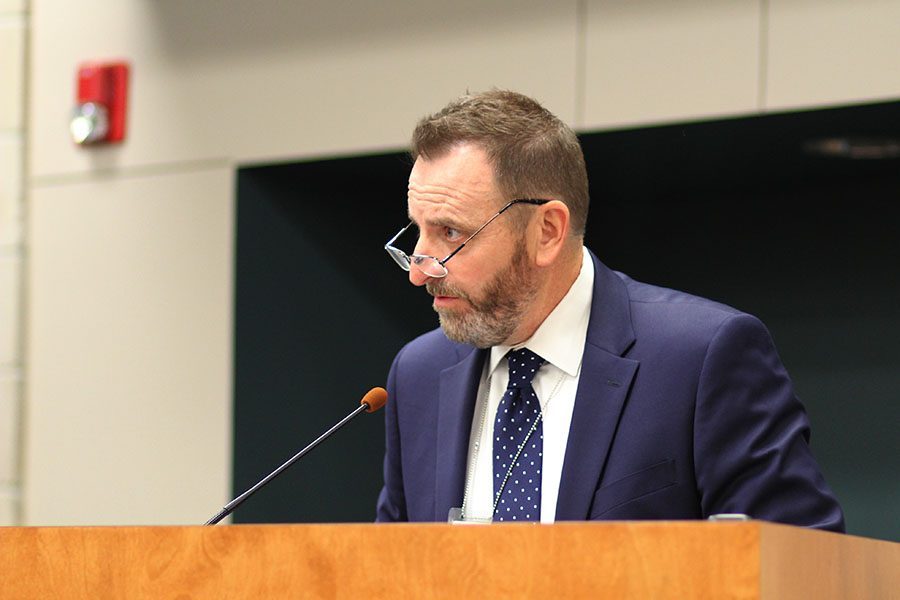
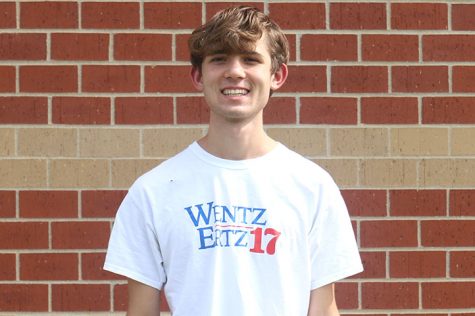
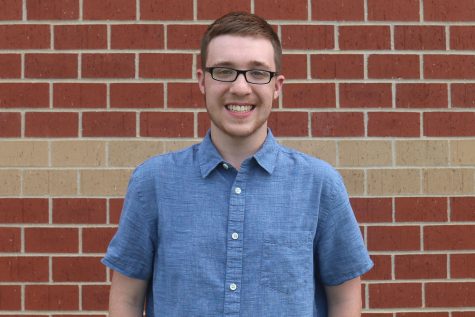

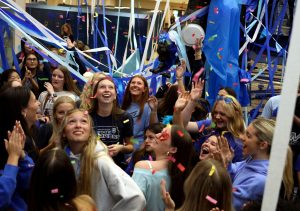
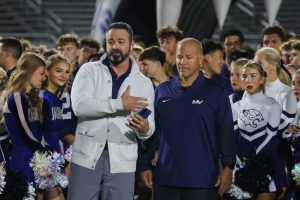


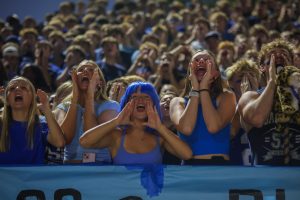
AKT • Apr 1, 2021 at 6:56 pm
Well-written and informative article, thank you!